Buy 2-Day Workshop-Polyvagal Theory Informed Trauma Assessment and Interventions -An Autonomic Roadmap to Safety, Connection and Healing – Deborah Dana Course at GBesy. We actively participate in Groupbuys and are committed to sharing knowledge with a wider audience. Rest assured, the quality of our courses matches that of the original sale page. If you prefer, you can also buy directly from the sale page at the full price (the SALEPAGE link is directly provided in the post).
2-Day Workshop-Polyvagal Theory Informed Trauma Assessment and Interventions -An Autonomic Roadmap to Safety, Connection and Healing by Deborah Dana,
Salepage link: At HERE. Archive:
- Faculty:
- Deborah Dana
- Duration:
- 2 Full Days
- Format:
- Audio and Video
- Copyright:
- May 21, 2019
Description
If our clients could have thought their way out of the impact of trauma, they would have done that a long time ago.
Trauma resolution is not about thinking. Healing depends, instead, on the work undertaken at the level of the autonomic nervous system, which shapes our clients’ experiences of safety and influences their capacity for connection. Traumatic events have a far-reaching impact on this system. Autonomic pathways trigger survival responses that often lead our clients on a painful journey into a state of shutdown, collapse, and dissociation. How can we help our clients find their way back to safety, and how do we prevent it from happening in the first place?
Polyvagal Theory, developed by Stephen Porges, offers a revolutionary roadmap to lead clients out of their adaptive survival responses into the autonomically regulated state of safety that is necessary for successful trauma treatment. Dr. Porges’ colleague and author of The Polyvagal Theory in Therapy, Deb Dana, shares this roadmap with you in this exciting recording.
You will become fluent in the language of Polyvagal Theory and confident in your ability to help clients safely tune into and reshape their nervous systems, and rewrite the trauma stories that are carried in their autonomic pathways. Come learn the organizing principles of Polyvagal Theory and work with practices designed to help clients move out of despair and isolation and return to a place of awareness, connection, and social engagement.
Handouts
| Manual – Polyvagal Theory Informed Trauma Assessment and Interventions (16 MB) | 88 Pages | Available after Purchase |
Outline
ESSENTIALS OF POLYVAGAL THEORY
- Evolution of the autonomic nervous system
- How trauma influences autonomic profiles
- Three organizing principles
- Neuroception: Detection without perception
- Hierarchy: 3 predictable pathways of response
- Coregulation: The biological imperative
NEUROCEPTION AND THE SHAPING OF AUTONOMIC PATHWAYS
- Understand the internal surveillance system
- Track cues of safety and danger
- Everyday “biological rudeness”
- Trauma, autonomic wisdom, and cognitive override
NAVIGATE THE AUTONOMIC HIERARCHY
- Exploring three autonomic circuits
- Sympathetic branch
- Ventral vagal pathway
- Dorsal vagal pathway
- How trauma shapes cycles of autonomic response
- Engage the regulating capacities of the autonomic nervous system
- Introduction to autonomic mapping
THE SOCIAL ENGAGEMENT SYSTEM
- The five elements of the Social Engagement System
- What happens when parts of the system are unavailable?
- Using the Social Engagement System to regulate states
- Exercising the Social Engagement System
TRACKING AUTONOMIC STATES
- Seeing patterns over time
- Use micro-moments to resource change
- Explore the blended states of play and stillness
- Create autonomic anchors
MEETING THE BIOLOGICAL NEED FOR CONNECTION
- Mapping the continuum of solitude to sociality
- Create safety in co-regulation
- Working with the cycle of reciprocity – rupture – repair
SHAPING THE AUTONOMIC NERVOUS SYSTEM TOWARD SAFETY
- Identify portals of intervention
- Create neural exercises
- Use breath as a regulator
- Resourcing new patterns through movement
- Explore the autonomic response to touch
- Use autonomic imagery
INCORPORATING POLYVAGAL THEORY IN CLINICAL PRACTICE
- Getting comfortable teaching Polyvagal Theory to clients
- Tracking the 8 steps of a Polyvagal-Informed clinical session
- Polyvagal-Informed assessment and treatment planning
- Polyvagal Theory and Phase I trauma treatment
RESPONSIBILITIES OF A POLYVAGALINFORMED THERAPIST
- The guiding questions
- Ethical considerations
- Research limitations and potential risks
Faculty

Deborah Dana, LCSW Related seminars and products: 10
Deb Dana, LCSW is a clinician and consultant specializing in working with complex trauma. She is a consultant to the Traumatic Stress Research Consortium in the Kinsey Institute and clinical advisor to Khiron Clinics. She developed the Rhythm of Regulation Clinical Training Series and lectures internationally on ways Polyvagal Theory informs work with trauma survivors. Deb is the author of The Polyvagal Theory in Therapy: Engaging the Rhythm of Regulation, Polyvagal Exercises for Safety and Connection: 50 Client-Centered Practices, co-editor with Stephen Porges of Clinical Applications of the Polyvagal Theory: The Emergence of Polyvagal-Informed Therapies, and creator of the Polyvagal Flip Chart. rhythmofregulation.com
Speaker Disclosures:
Financial: Deborah Dana maintains a private practice. She is an author for W.W. Norton and receives royalties. She receives a consulting fee from Indiana University; and the Veterans Administration. Ms. Dana receives a speaking honorarium from PESI, Inc.
Non-financial: Deborah Dana has no relevant non-financial relationship.
Buy the 2-Day Workshop-Polyvagal Theory Informed Trauma Assessment and Interventions -An Autonomic Roadmap to Safety, Connection and Healing – Deborah Dana course at the best price at GBesy.. After your purchase, you will get access to the downloads page. You can download all the files associated in your order at here and we will also send a download notification email via your mail.
Unlock your full potential with 2-Day Workshop-Polyvagal Theory Informed Trauma Assessment and Interventions -An Autonomic Roadmap to Safety, Connection and Healing – Deborah Dana courses. our courses are designed to help you excel.
Why wait? Take the first step towards greatness by purchasing 2-Day Workshop-Polyvagal Theory Informed Trauma Assessment and Interventions -An Autonomic Roadmap to Safety, Connection and Healing – Deborah Dana courses today. We offer a seamless and secure purchasing experience, ensuring your peace of mind. With our trusted payment gateways, Stripe and PayPal, you can confidently complete your transaction knowing that your financial information is protected.
Stripe, known for its robust security measures, provides a safe and reliable payment process. With its encrypted technology, your sensitive data remains confidential throughout the transaction. Rest assured that your purchase is protected.
PayPal, a globally recognized payment platform, offers an additional layer of security. With its buyer protection program, you can feel confident in your purchase. PayPal ensures that your financial details are safeguarded, allowing you to focus on your learning journey.
Is it secure? to Use of?
- Your identity is completely confidential. We do not share your information with anyone. So it is absolutely safe to buy the 2-Day Workshop-Polyvagal Theory Informed Trauma Assessment and Interventions -An Autonomic Roadmap to Safety, Connection and Healing – Deborah Dana course.
- 100% Safe Checkout Privateness coverage
- Communication and encryption of sensitive knowledge
- All card numbers are encrypted using AES at relaxation-256 and transmitting card numbers runs in a separate internet hosting atmosphere, and doesn’t share or save any data.
How can this course be delivered?
- After your successful payment this “2-Day Workshop-Polyvagal Theory Informed Trauma Assessment and Interventions -An Autonomic Roadmap to Safety, Connection and Healing – Deborah Dana course”, Most of the products will come to you immediately. But for some products were posted for offer. Please wait for our response, it might take a few hours due to the time zone difference.
- If this happens, please wait. The technical department will process the link shortly after. You will receive notifications directly by e-mail. We appreciate your wait.
What Shipping Methods Are Available?
- You will receive a download link in the invoice or YOUR ACCOUNT.
- The course link always exists. use your account to login and download the 2-Day Workshop-Polyvagal Theory Informed Trauma Assessment and Interventions -An Autonomic Roadmap to Safety, Connection and Healing – Deborah Dana course whenever you need.
- You only need to visit a single link, and you can get all the 2-Day Workshop-Polyvagal Theory Informed Trauma Assessment and Interventions -An Autonomic Roadmap to Safety, Connection and Healing – Deborah Dana course content at once.
- You can do your learning online. You can be downloaded for better results and can study anywhere on any device. Make sure your system does not sleep during the download.
How Do I Track Order?
- We always notice the status of your order immediately after your payment. After 7 days if there is no download link, the system will automatically complete your money.
- We love to hear from you. Please don’t hesitate to email us with any comments, questions and suggestions.
![GBesy [GB] GBesy [GB]](https://www.gbesy.com/wp-content/uploads/2023/05/gbesy-Logo-full-100.png)
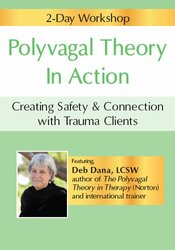
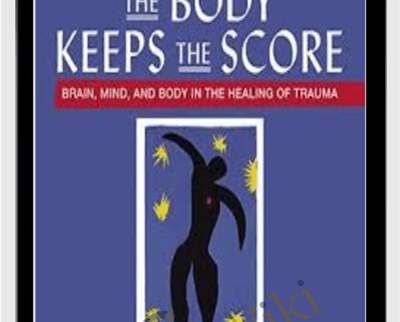
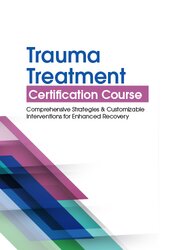
 Purchase this course you will earn
Purchase this course you will earn 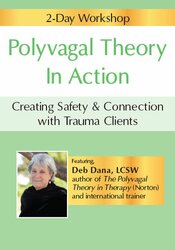


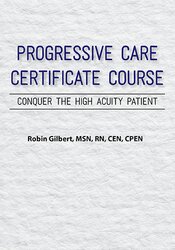

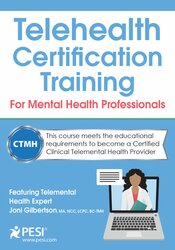
Reviews
There are no reviews yet.